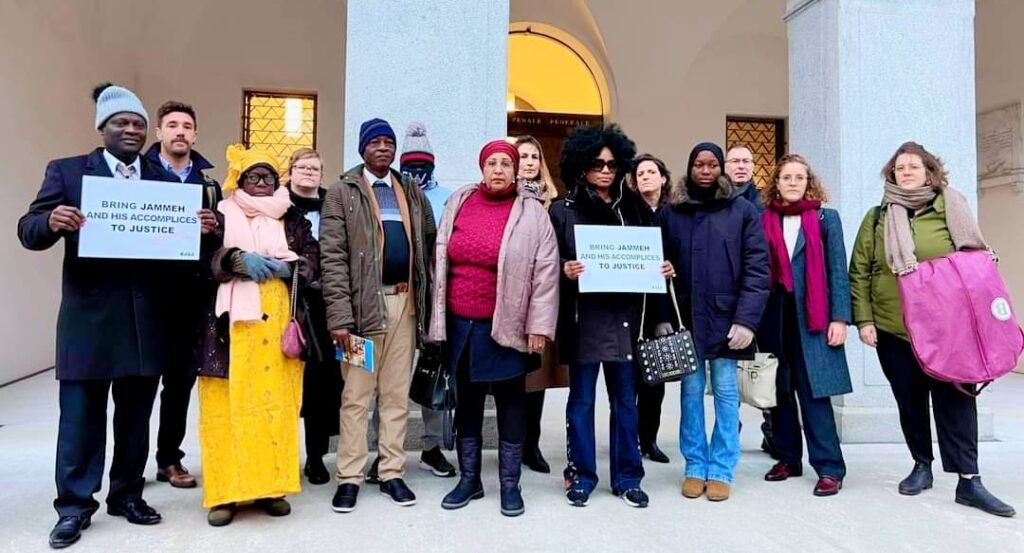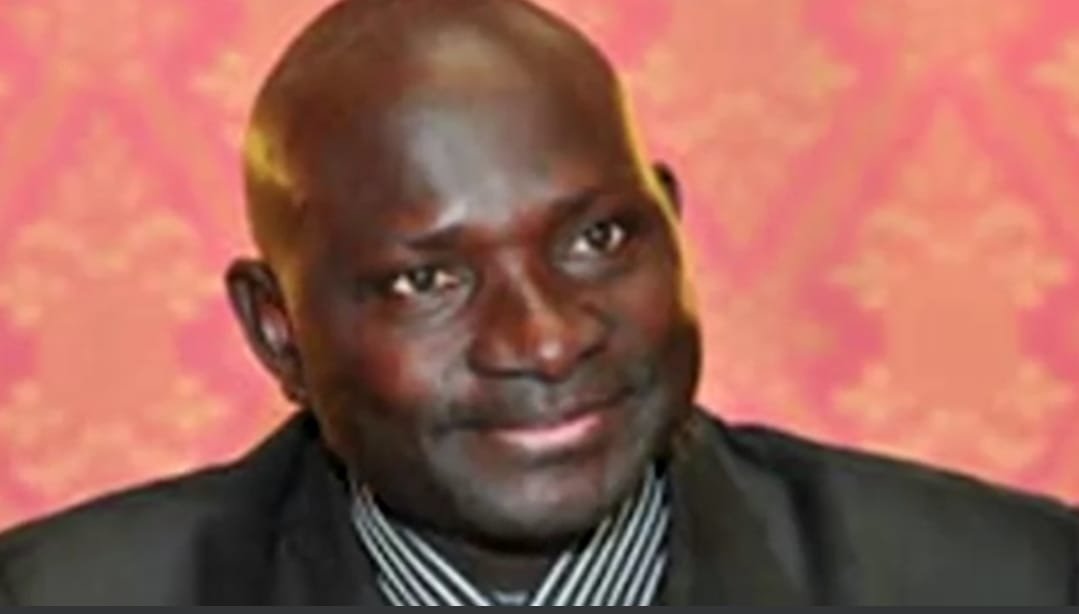The former Minister of Interior faces charges of crimes against humanity, including torture, kidnapping, sexual violence, and unlawful killings that occurred during his tenure as Interior Minister between 2000 and 2016, under the presidency of Yahya Jammeh.
The opening of the trial for the alleged serious crimes committed by a former senior Government official represents a significant advance for justice not only for victims of grave human rights abuses but for Gambian and international groups that are part of the “Jammeh2Justice” campaign.
The legal action against Sonko commenced on the day of his arrest in Bern, Switzerland, on January 26, 2017, when TRIAL International lodged a criminal complaint against him. Subsequently, the Office of the Attorney General of Switzerland filed an indictment against him on April 17, 2023, leading to the commencement of the trial in Bellinzona, Switzerland, which is anticipated to last for three weeks
The trial of former Interior Minister Ousman Sonko is made possible due to Swiss laws that recognize universal jurisdiction over certain serious international crimes, enabling the prosecution of such crimes regardless of where they were committed or the nationality of the suspects or victims.
The former Interior Minister faces accusations of heinous acts including arbitrary arrests, torture, extrajudicial killings, and enforced disappearances that occurred during the 22-year regime of President Yahya Jammeh.
During the trial, there were 10 complainants according to a Geneva-based NGO, including eight direct victims like Hon. Madi Cessay, Ramzia Diab, Demba Dem, Family of Sol Sendeng etc actively seeking justice with banner signs “Bring Jammeh and his accomplices to justice,” at the court.
The trial commenced both the defence and prosecutors presented arguments related to procedural matters and organizational questions.
Sonko’s lawyer, Philippe Currat, contended that it is beyond the appropriate time frame to prosecute the alleged crimes and has requested the exclusion of specific evidence from the case file.
“(Sonko) requests you to decide to abandon the proceedings in respect of the acts described in the indictment which are alleged to have taken place before January 1, 2011,” Currat said
Additionally, the defence has requested a complete English translation of the trial proceedings for Sonko’s benefit
Conversely, the Federal Prosecutor and the plaintiffs’ lawyer argued that crimes against humanity are not subject to a statute of limitations, thus none of the charges should be considered as time-barred.
On the second day of proceedings, the Court ruled that the trial would proceed, and following the determination of whether crimes against humanity were committed, they would deliberate on jurisdiction and the statute of limitations. The Court also addressed the defence’s claims regarding the alleged violation of procedural rules during the investigation and upheld the legality and documentation of the evidence collected. Furthermore, it confirmed German as the procedural language and declined to provide interpretation in English, maintaining its initial position.
The Court reminded Ousman Sonko of the crimes he was accused of. He was then asked to answer questions about his situation. The accused (Ousman Sonko) affirmed that his seven years of pre-trial detention had been the worst time of his life.

In his statement, Ousman Sonko reaffirmed that he was not guilty of the crimes he was accused of. He stated that he had always been loyal to his country and served it as best as he could.
When questioned about Jammeh’s threatened speech, he claimed that he was not aware of Yahya Jammeh’s speeches where he publicly threatened the population. On whether People may have been tortured during his term as Minister, he responded that he did not know about such crimes taking place in his Ministry.

He added that The National Intelligence Agency (NIA) had never been under his authority and he had never worked for the Agency. He also claimed he did not know of any harsh treatment that took place in the security wings of Mile 2 prison.

He further stated that he had never participated in any meeting with President Jammeh to develop a strategy to attack the civilian population, nor had he taken part in meetings where torture at the NIA was discussed.
Source: TRIAL International
